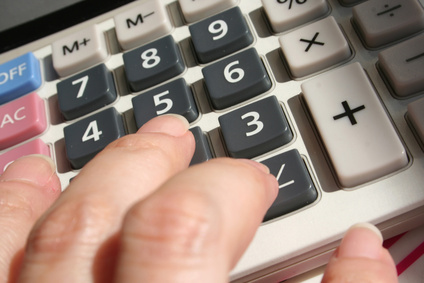Co-habiting partners, whether married or not, share most aspects of their lives. Although each partner may earn their own income independently of their other half, many such couples share the burden of paying for their normal living expenses on a mutual basis.
In theory, each partner might be expected to discharge expenses proportionately to their income on the basis that the more you earn the greater the share of the expenses burden you should bear, vis-à-vis your partner. In practice however, there may be a great imbalance between the incomes of cohabiting partners. It would not be uncommon for one partner to earn say two thirds of the household income with the other partner earning one third. You might expect that the partners in this relationship would pay the living and household expenses on a similarly proportionate basis i.e. at a respective ratio of two to one. In real life, this does not always happen for all sorts of reasons.

Suppose for example that the lower earning partner is much more extravagant than the high earner and as a result incurs huge liabilities on overdrafts, credit cards and unsecured loans to the extent of being insolvent. Let us further suppose that this insolvent partner enters into an IVA to address their debts. In such a scenario it is only fair and natural that each partner be personally liable for their own debts and that both partners be liable for jointly incurred debts. How then will the solvent partner’s finances be impacted? And is the insolvent partner’s condition contagious?
When the insolvent partner enters into an IVA, creditors will expect to see a statement in which is set down the figures for the income and expenditure of the household showing how living expenses are incurred and how they are paid for. They will expect each partner to pay expenses in the same ratio as their income. A key consideration in reviewing these matters is whether the partners agreed in advance to pool their resources when their cohabitation commenced or whether and at what point during their cohabitation they agreed to do so. Even without a formal agreement, creditors may deduce from the evidence of their lifestyle and expenditure that they have such an agreement, whether it be formal or implicit or otherwise.
In many cases the solvent partner may voluntarily agree to assist the insolvent partner in their IVA by contributing some or all of their own surplus income to the IVA, thus maximising the amount that the insolvent debtor’s creditors can hope to recover.
It is hard to see therefore how the insolvent partner’s IVA would not impact adversely on the solvent partner’s credit worthiness. The IVA proposal will of course have addressed any joint debts the partners may have incurred and joint creditors will stand to receive a dividend from the IVA. However, during the term or life of the IVA, the solvent partner continues to be fully liable for the ongoing repayment of joint debts. If at the end of the term of the IVA there are any unpaid balances remaining on joint debts, the solvent partner assumes full responsibility for these and is liable for their repayment in full. A further negative consequence for the solvent partner is that there may be a reluctance to lend funds to the solvent partner, on the part of some creditors, who are aware of the insolvent partner’s IVA.
Nevertheless, many people have successfully completed their IVA without negatively affecting their solvent partner. A well constructed IVA will deal with all matters relating to income and expenditure, assets and liabilities and afford both partners an opportunity to fully and finally heal their financial woes. If you think you may be insolvent while your partner is not then you should consider consulting with an Insolvency Practitioner, otherwise known as an IP, as a first step. A reputable IP will look at all of your financial circumstances and will determine very quickly if you are insolvent or not. Such initial advice will frequently cost nothing and if you are in fact insolvent, your IP can go on to advise you on all of the options open to you and you choose the option you like best for yourself. It may be that the IP will advise you and your partner to take independent legal advice before proceeding with any insolvency solution, to ensure that the rights of both parties are fully protected and safeguarded.